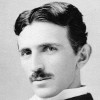“ The nature of man may be viewed in two ways: the one according to its end, and then he is great and incomparable ”
Blaise Pascal, Pensées (1670). copy citation
| Author | Blaise Pascal |
|---|---|
| Source | Pensées |
| Topic | view |
| Date | 1670 |
| Language | English |
| Reference | |
| Note | Translated by W. F. Trotter |
| Weblink | http://www.gutenberg.org/files/18269/18269-h/18269-h.htm |
Context
“the repose of those who abandon themselves to them; and the passions keep always alive in those who would renounce them.
414
Men are so necessarily mad, that not to be mad would amount to another form of madness.
415
The nature of man may be viewed in two ways: the one according to its end, and then he is great and incomparable; the other according to the multitude, just as we judge of the nature of the horse and the dog, popularly, by seeing its fleetness, et animum arcendi; and then man is abject and vile. These are the two ways which make us judge of him differently, and which occasion such disputes among philosophers.”
source


